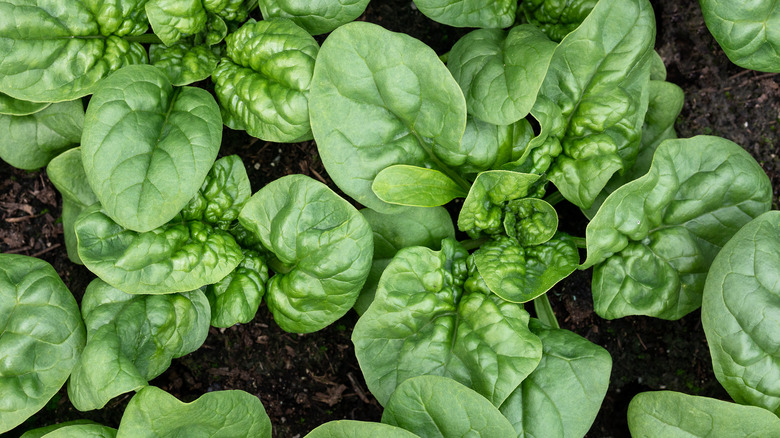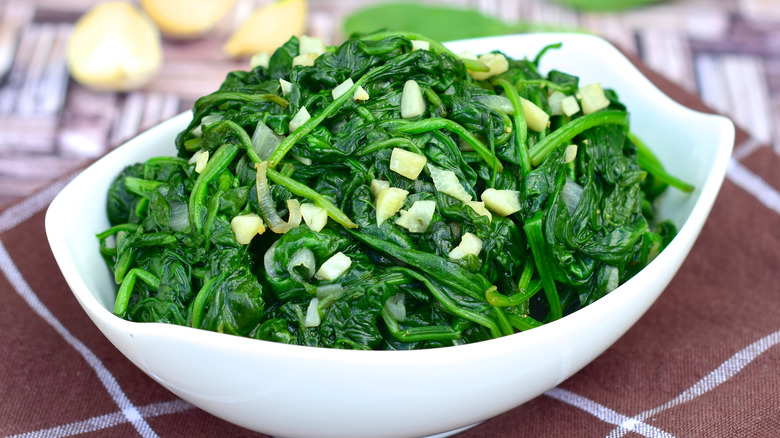'Spinach Teeth' Is A Real Phenomenon. Here's What Causes It
Though some people may not like spinach, it's steadily climbing its way up the list of favorite vegetables. According to the University of Missouri, the average American currently eats almost 3 pounds of spinach annually. This may not seem like a lot, but to put it into perspective, the average American consumed a mere 5 ounces of spinach in 1975 (via The Seattle Times). So, it's safe to say that many people have acquired a soft spot for the leafy green vegetable over the years, and there are several reasons why. For one, spinach is filled with a variety of nutrients that offer numerous health benefits, including preserving eye health and preventing cancer formation, per Healthline. Additionally, this vegetable is extremely versatile — you can blend it in smoothies, incorporate it in dip, and so much more!
However, despite spinach's health benefits and versatility, there is a slightly annoying side effect that occurs when eating it: "spinach teeth." According to Modern Day Smiles, spinach teeth describes the feeling of grittiness on your teeth after consuming it. So, if you've ever felt this gritty, chalky sensation, you aren't alone. But what's the cause of spinach teeth?
Spinach teeth is caused by oxalic acid
Spinach contains a high amount of oxalic acid, reports Modern Day Smiles. When this vegetable is cooked, it releases oxalic acid, but this on its own is not what causes spinach teeth. When you eat spinach, the oxalic acid combines with calcium in your saliva, creating calcium oxalate crystals. These crystals are insoluble — they can't dissolve in water — so their formation creates a gritty feeling on your teeth.
There are some things you can do to lessen the effect of spinach teeth. According to Tarpon Shores Dental, you can try pouring a bit of lemon juice over raw or cooked spinach before eating it. The acid in the lemon juice will dissolve some of the oxalic acid, reducing the grainy feeling on your teeth. Another simple thing you can do is brush your teeth shortly after consuming the vegetable. Doing this will remove the calcium oxalate crystals that have formed, making your mouth feel normal in no time.
Is it harmful?
Though annoying, spinach teeth is not harmful to your teeth. In fact, oxalic acid is known to reduce tooth sensitivity, and the calcium oxalate crystals that form after consuming spinach are often used by dentists to remedy sensitivity, per Modern Day Smiles. So, you definitely don't have to worry about spinach eroding your tooth enamel, and it may actually benefit you.
However, though the oxalic acid in spinach isn't damaging to teeth, it can harm your body. SFGate reports that oxalates increase the likelihood of kidney stones, and because spinach contains a high amount of oxalates, it can cause a stone to form. With this being said, if you are susceptible to kidney stones, you may want to avoid spinach or simply monitor how much you're eating. There are some cooking methods — including boiling and steaming — that are known to reduce the oxalate levels in spinach, which decreases the likelihood of both kidney stones and spinach teeth.


